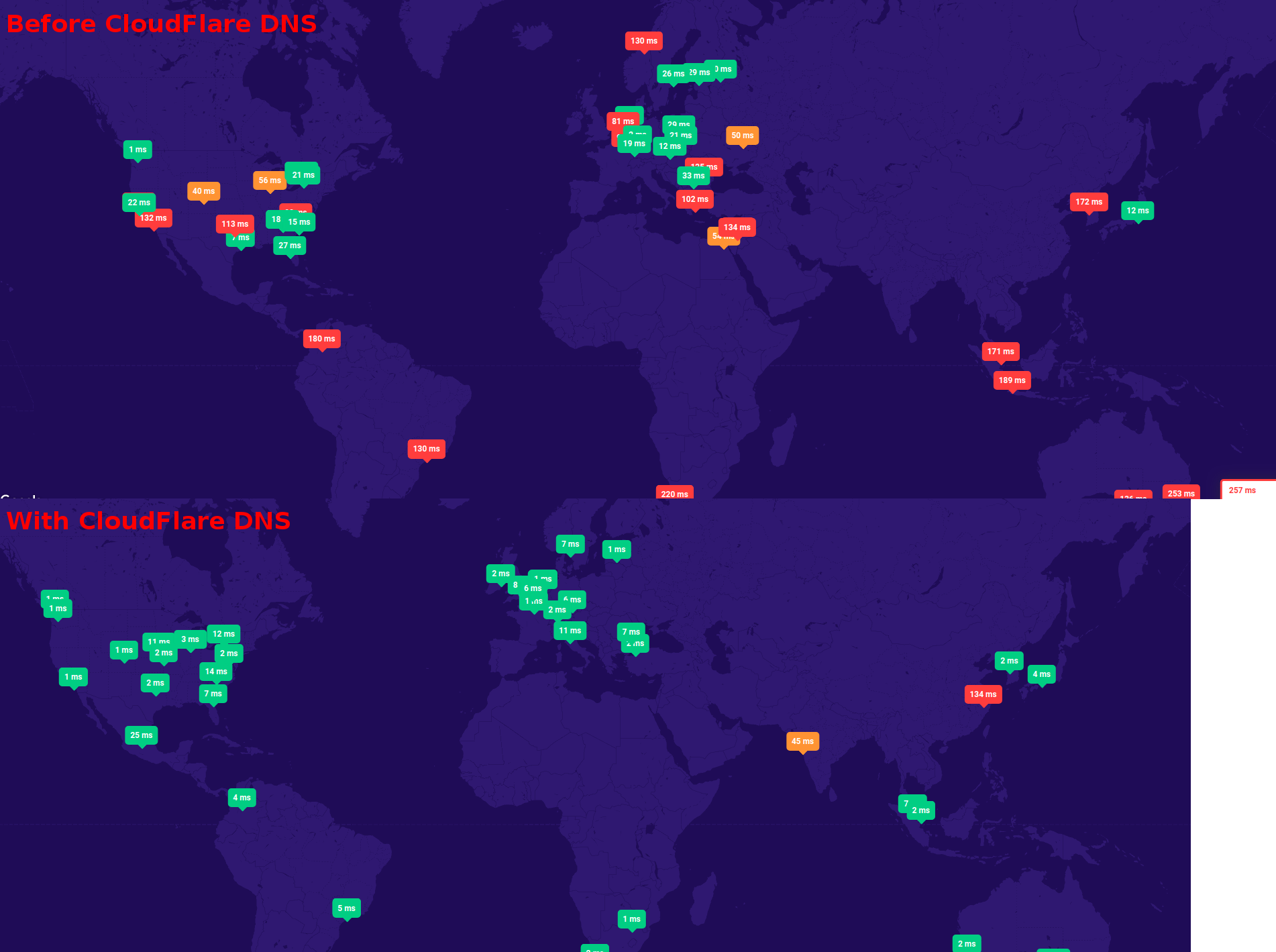I'm trialing out CloudFlare (which I only want for speed optimisation). I'm guessing I should wait a bit longer to test the true benefits, due to propagation.
One thing I can't find out is if such premium DNS services (like CloudFlare) improve SSL/TLS time.
I've trialed CloudFlare on my personal site, which is hosted in Quebec. I am currently in Colombia and the ping has gone down from about 300ms to 55ms. However, the online tools that measure SSL/TLS handshake are reporting very different times.
UPDATE
After struggling through tests and literature to understand what the situation is. The answer is Yes, but if you are using CloudFlare you need to disable their firewall and other features and just use their DNS, see. Those features add about 330ms to your page load.
My DNS lookup times have gone from around 30ms on average in North America and Europe; and sometimes in excess of 200ms in other parts of the world down to between 1-3ms in general; and usually below 15ms anywhere. China seems to be an exception. This is a good site to test DNS times.
TLS time has been reduced from about 60-90ms to about 25-35ms in Europe and North America.
Difference in DNS time:


pingis a very poor troubleshooting/measurement tool, to the amount of never being useful in fact for many reasons. Usedigif you want to test speed of DNS queries (or any online tool doing the same, but notping). Or at least specificallytraceroutetowards port 53 either UDP or TCP. But notping.